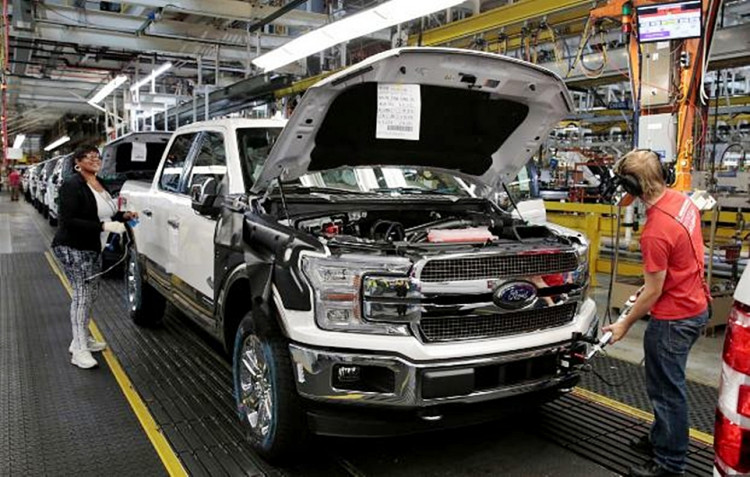A survey of more than 800 U.S. firms confirms that president Donald Trump's unwarranted trade war will severely hurt American business and consumers in 2019 and will also fail to bring manufacturing jobs abroad back to the country.
The survey released yesterday by IHS Markit, a London-based economics research firm, reveals that more than 4 in 10 companies plan to raise prices to offset the higher cost of production caused by Trump's trade war.
Only 1 in 10 plans to reduce the share of total output produced outside the U.S. The same number said Trump's tariffs will encourage them to move more jobs offshore.
The biggest blow to Trump's boast his trade war will boost job growth came a few days ago when General Motors Company, the country's largest carmaker, said it will fire some 15,000 employees, partly due to more expensive steel and aluminum.
Trump levied tariffs on both metals in March citing their imports as threats to U.S. national security. Canada and the European Union retaliated by raising their own tariffs on U.S.-made steel and aluminum.
Industry analysts said U.S. automakers have been hit hard by the steep rise in steel prices brought by higher U.S. duties on imported steel imp; used by Trump.
The survey showed American consumers will bear much of the cost of Trump's tariffs in 2019 in the form of higher prices. Another new study estimates the economic impact of lost wages and higher prices at $2,400 per household in 2019.
Trump's plan to bring China to heel through the imposition of punishing tariffs isn't going well either.
Citing China's unfair trade practices, Trump levied 10 percent tariffs on $200 billion of Chinese imports in September. China countered by imposing taxes on $60 billion worth of U.S. goods.
The U.S. duties are set to increase to 25 percent on Jan. 1, 2019. Trump has also threatened to impose duties on $267 billion worth of goods if China does not surrender to his demands.
Trump said it was "highly unlikely" he'll accept China's request to postpone the tariff hike, which will take effect on Jan. 1, 2019.
"The only deal would be China has to open up their country to competition from the United States," according to Trump.
Trump also said that if negotiations are unsuccessful, he'll go ahead and heavily tax China's remaining imports. He declared that if he and Xi don't make a deal, "then I'm going to put the $267 billion additional on." The tariff rate, in this case, will be either 10 percent or 25 percent.
Trump said the next round of tariffs will also tax laptops and Apple iPhones imported from China. These electronic devices are part of the $267 billion lists of goods not yet hit by the new tariffs.
The Trump administration has refused to levy heavy tariffs on smartphones and computers to minimize anger among American consumers. Media reports confirm the Trump administration remains very worried about a consumer backlash to tariffs that will considerably raise the prices of popular electronic devices.






